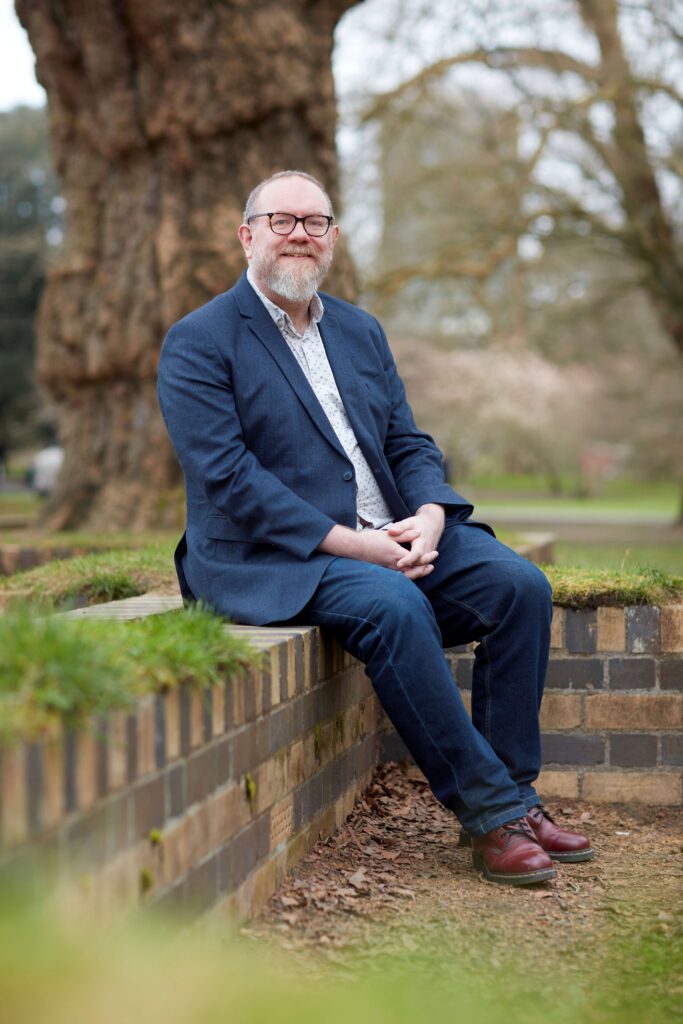Tomorrow is WORLD BIPOLAR DAY (30th March) and Mind Cymru is raising awareness of bipolar disorder, after research found the number of people who recognise the condition as a mental illness has continually fallen in the past three years.
Levels of mental health stigma in Wales were also found to be at an all-time high in the latest Attitudes to Mental Illness survey (HERE) from Wales’ national anti-stigma programme, Time To Change Wales.

The report found that the number of people who believe those living with a mental illness are a burden on society has doubled in the past five years.
A lack of funding from Welsh Government for Time To Change Wales to continue means, however, that the programme is set to close on March 31st.
Mark Smith first visited his GP when feeling mentally unwell 25 years ago and was given anti-depressants for depression and anxiety. Despite appointments with numerous health professionals over a period of 13 years, it wasn’t until he spoke to a psychiatrist by chance during a visit to an outpatient service that he was finally diagnosed with bipolar disorder.
Mark, from Creigiau, said….
“It wasn’t necessarily about the diagnosis, and the perception of ‘labels’, but about needing more effective and appropriate treatment. I told the psychiatrist that I’d been on antidepressants, and he described someone with bipolar being treated in this way for so long as potentially dangerous. While antidepressants will treat the depressive side of the condition, they are not treating the highs, leading to instability of mood.
This is why increasing understanding is so important. There are people with bipolar who possibly, because they are being misdiagnosed, are not getting the right medical treatment.”

Mark has also worked as a volunteer Champion for Time To Change Wales, helping to tackle stigma within communities, supporting others to share their experiences and campaigning in the media for the past 13 years.
Mark, who has been part of the programme since it started, said…..
“I’m worried about what will happen with the end of the Time to Change Wales programme.
Anti-stigma is mentioned in the draft Mental Health Strategy for Wales, but not the commitment to fund a dedicated campaign. I think that this will dilute efforts, and I worry it will stop people reaching out for help because they feel stigmatised.”
Bipolar disorder is a mental health problem that mainly affects a person’s mood. Those living with bipolar are likely to have times where they experience manic or hypomanic episodes, periods of depressive and low mood, and potentially psychotic symptoms too. Around 50,000 people in Wales are thought to live with bipolar disorder.
Sue O Leary, Executive Director at Mind Cymru told us…..
“Awareness days like World Bipolar Day are key in helping others to understand the challenges people living with mental health problems in Wales face every day, and this year’s event is an opportunity to tackle the stigma many experience given the loss of Time To Change Wales.
Mark’s experiences show us just how easy it is for bipolar disorder to be misunderstood by many, including health professionals. And yet, we know that fear and stigma is still something which stops far too many of us in reaching out and getting the help we need with our mental health.
There is a need now, perhaps more than ever, for people in Wales to better understand and support people who may be experiencing bipolar disorder or any other mental health problems within their local communities, by letting them know that it’s ok to open up and by encouraging them to seek help if needed.”
For more information on bipolar disorder, symptoms and treatment you can visit the Mind website HERE or contact your local Mind in Wales HERE.
Mind also provides a safe space for anyone to talk about their mental health with advisors who are trained to listen, and help find specialist support if needed, through its dedicated Support Line on 0300 102 1234 (available 9am to 6pm Monday to Friday).






